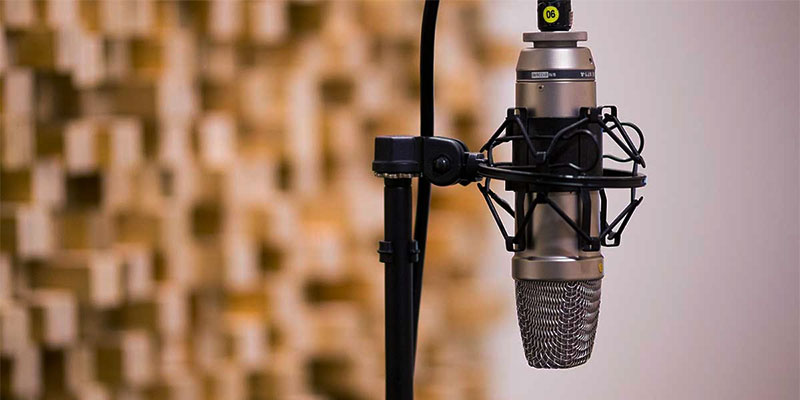Recording Vocals: Here’s How to Make Sure Your Recording Levels Are in Check!

When recording vocals, it’s important to make sure your recording levels are in check. That means making sure the volume of your vocal track is not too loud or too soft. Here’s how to do it:
First, make sure you’re using a good vocal mic. There are many great mics out there. It’s a dynamic mic that is specifically designed for voice recording.
Next, set your input level on your audio interface or mixer to around -10 dBV. This will give you enough headroom to prevent distortion and keep your vocals sounding clean. Finally, use a good pop filter to minimize plosives and sibilance.
Why is recording vocals at a higher dB level critical for professional audio quality?
There’s a reason why your favorite singers always sound great in the studio, and it has nothing to do with their vocal abilities. By recording vocals at a higher dB level, you can get that extra bit of volume and power that will make your voice stand out in the mix. In this blog post, we’ll discuss what dB should vocals be recorded at.
There is no one perfect answer to what dB level vocals should be recorded at. However, there are a few things to keep in mind when making this decision. Firstly, you want to make sure that the vocals are loud enough to be heard clearly over the music, but not so loud that they drown out everything else. Secondly, you need to take into account the other instruments and sounds that will be competing for space in the mix. Finally, you need to find a balance between clarity and warmth that works well with your style of music. experimenting with different levels until you find what works best for you is always a good idea.

When you’re recording vocals, it’s important to get the levels just right. If they’re too low, you might not capture all the details of your performance.
But if they’re too high, you can easily distort your voice and make it sound harsh. So how do you find the perfect balance? Many people recommend recording vocals at a higher dB level. By doing so, you’ll ensure that your voice is always audible in the mix. And since distortion is less likely to occur at higher volumes, you’ll be able to sing with more power and clarity. So if you want to produce great-sounding vocals, try recording them at a higher dB level. You may be surprised by the difference it makes!
Should your vocals be louder than the beat?
There is a debate in the dance music community as to whether vocals or beats should be louder in a song. Some believe that the vocals are the most important part of the song and they should be heard above all other elements, while others believe that the beat should take center stage. What’s your opinion? Should vocals be louder than the beat in dance music?
This is the eternal debate among producers, especially those from a hip-hop background. Many rappers are used to yelling their lyrics at their loudest point, over any beat they get on, be it house or dubstep. However, when they transition to electronic music production, these same rappers may try applying this mentality to their productions by pushing their vocals to be louder than the beat.
There is no one correct answer to whether your vocals should be louder than the beat. The mix of your vocals and the beat can make or break a song, and it largely depends on what type of song you are trying to create. For example, if you want to create a pop anthem with powerful vocals that take center stage, you will want your vocals to be louder than the beat. However, if you aim for a more subtle and soulful sound, keeping your vocals in balance with the beat may be better for your song. Ultimately, it is up to you as the artist to decide what sounds best for your song. So experiment until you find the mix that works best for you!
